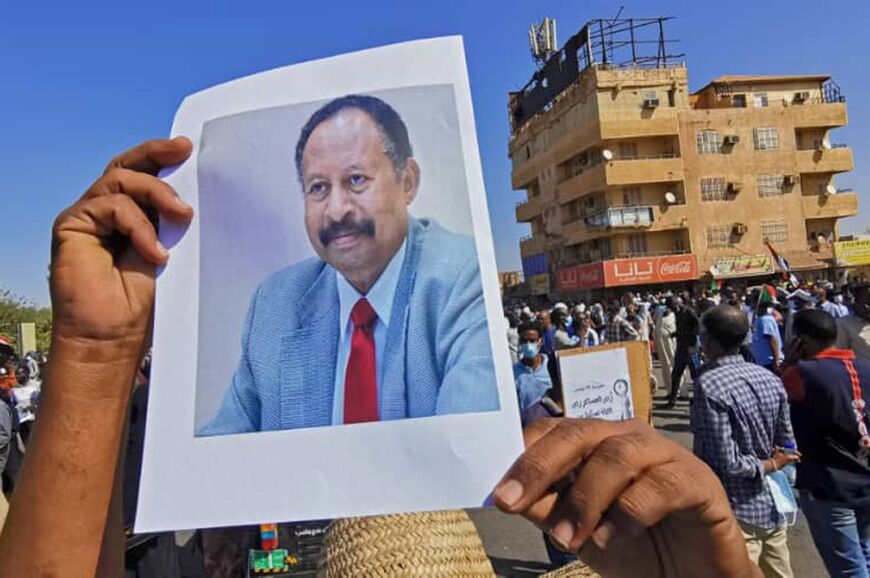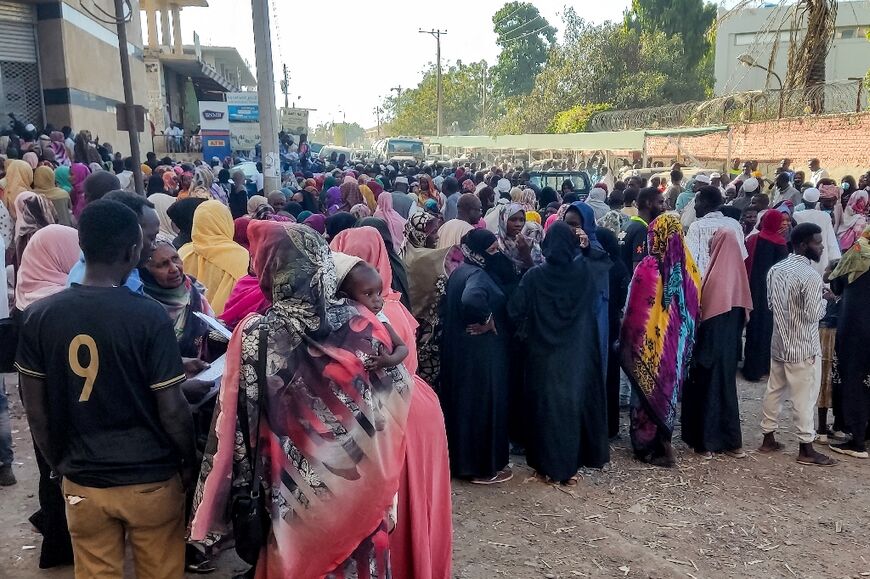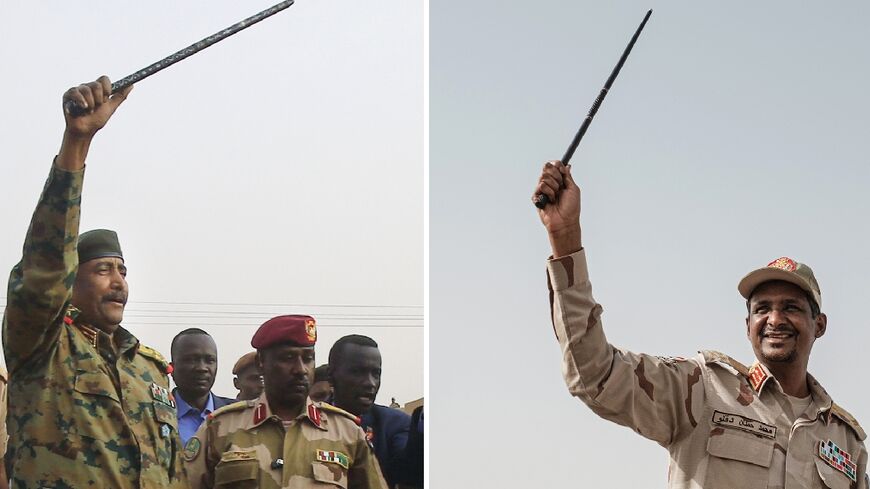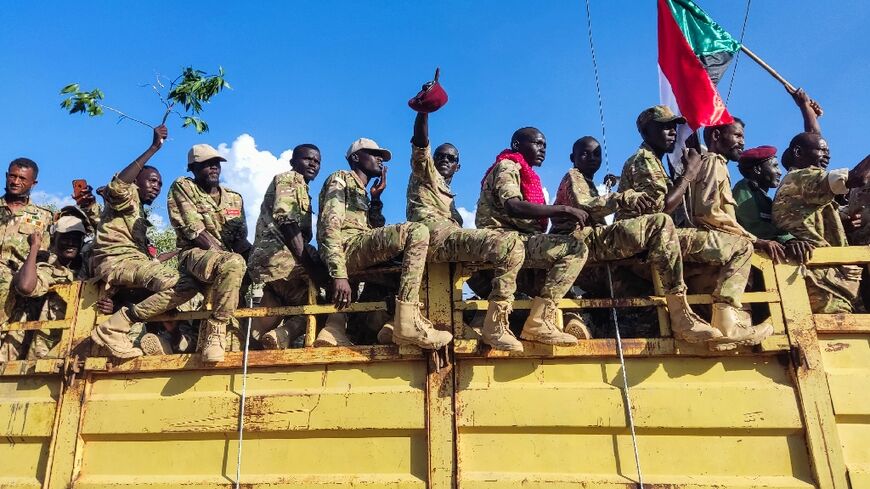Sudan paramilitary chief bids for legitimacy in Africa tour: analysts
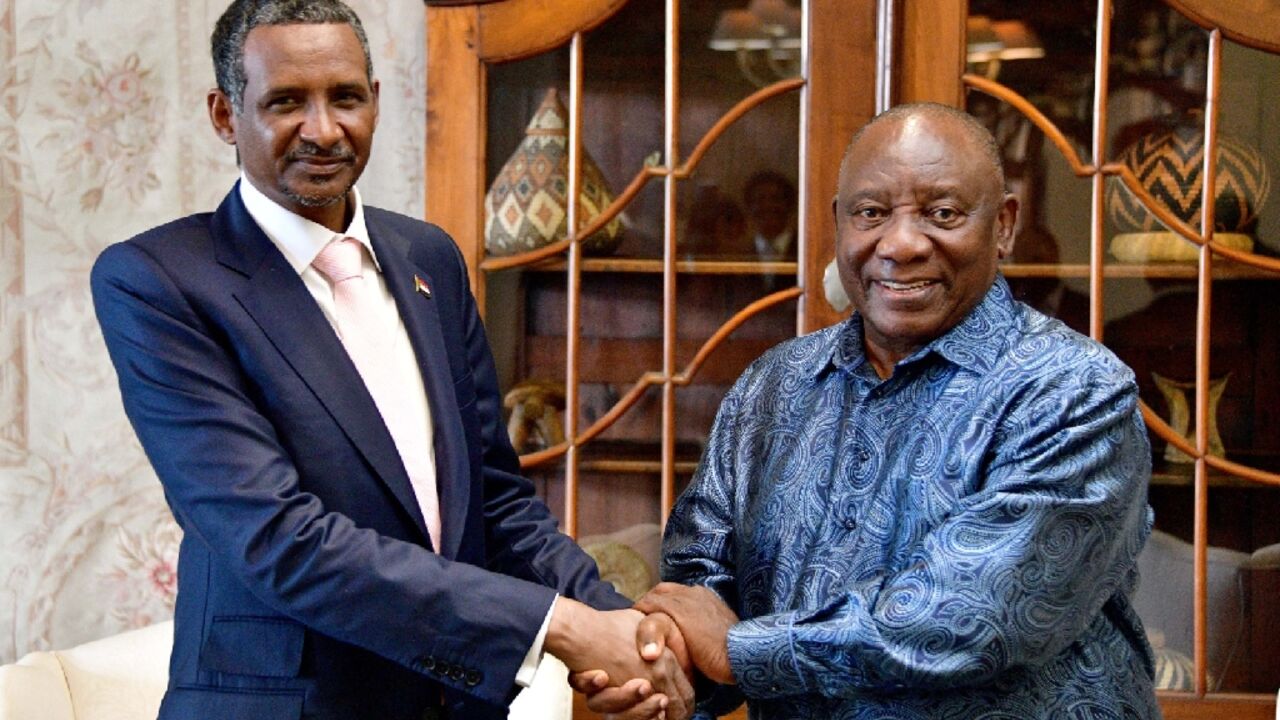
Sudan's paramilitary chief spent the first months of the country's war in the shadows. Now he has emerged to embrace civilian politicians and tour African capitals in a bid for international legitimacy, analysts say.
Mohamed Hamdan Daglo -- commonly known as Hemeti -- commands the paramilitary Rapid Support Forces (RSF) which the United States accused of ethnic cleansing and crimes against humanity in Sudan's Darfur region during its war with the army.
The RSF has been fighting the Sudanese Armed Forces, led by Abdel Fattah al-Burhan, since April last year in the northeast African country where the US has also accused the army of war crimes.
Daglo had remained largely out of sight while Burhan emerged from a siege of military headquarters to make overseas trips and address the UN General Assembly as Sudan's de facto leader.
But since late December Daglo has been on his first wartime trip abroad, meeting government leaders in Uganda, Djibouti, Ethiopia, Kenya, South Africa and Rwanda.
It is part of a strategy analysts see as likely linked to the United Arab Emirates.
Daglo is "in the ascendancy," said veteran Sudan expert Alex de Waal.
So is the war's death toll, estimated conservatively at more than 12,190.
Clement Deshayes, a Sudan specialist at Sorbonne University in Paris, said Daglo had been "welcomed with the attributes of a head of state" on his visits.
The most important, said Deshayes, came in Addis Ababa where Daglo met with and embraced Sudan's former prime minister Abdalla Hamdok, who was placed under house arrest after an October 2021 coup orchestrated by Burhan and Daglo, then allies.
Their putsch derailed Sudan's fragile transition to democracy.
After a brief reinstatement, Hamdok resigned in January 2022 and fled for Abu Dhabi. He remains Sudan's foremost civilian politician and has reemerged as part of a new coalition known as Taqadum.
- 'Kiss the ring' -
In embracing Taqadum, Daglo was making "the single most important move that he could to gain legitimacy," said Andreas Krieg, a security studies expert at King's College London.
Although Burhan's administration continues to put out statements as the Sudanese government, the RSF controls the streets of the capital Khartoum, nearly all of the western Darfur region, and in December pressed deeper into Al-Jazira state, shattering one of the country's few remaining sanctuaries.
The United Nations says the violence is "imperiling regional stability", having unleashed the world's largest displacement crisis that has uprooted more than seven million people, including around 1.4 million who have crossed into neighbouring countries.
Daglo, a former camel and sheep trader, rose to prominence under Sudan's former strongman Omar al-Bashir who unleashed Janjaweed militias after an ethnic minority rebellion began in Darfur in 2003. The militia campaign led to war crimes charges against Bashir and others.
When security personnel attacked pro-democracy demonstrators in Khartoum in June 2019 after Bashir's overthrow, it was the RSF, descendants of the Janjaweed, that witnesses said were at the forefront of the bloodshed, killing at least 128 people.
However, Daglo's embrace of a civilian partner offers the chance to gain international legitimacy, particular from the West, analysts told AFP.
That, said Deshayes, was "despite the ethnic cleansing in Darfur (and) the systematic rape and looting in central Sudan and Darfur".
Kholood Khair, a Sudanese analyst, said rumours of a linkup between Hamdok and Daglo had been "rife even before the war" and were "kicked into overdrive" by the Addis meeting.
In videos of the Addis event, Hamdok and his fellow politicians line up to shake hands with Daglo, who wears a sharp suit instead of military fatigues.
"The optics of the meeting were that Hemeti is in charge," Khair told AFP, with Hemeti "holding court and them coming to him, taking turns to say hello and kiss the ring."
On social media, pro-democracy activists accused Hamdok of betraying civilians for political gain.
- The army isolated -
Hamdok has said he hopes for "an urgent meeting" with Burhan.
However, Cameron Hudson, an Africa expert at the Center for Strategic and International Studies, said the general was now "highly unlikely" to agree.
Burhan reacted with fury to Daglo's tour, accusing the host nations of "partnering in the murder of the Sudanese people".
That "is precisely the intent," Hudson told AFP.
"It will make the army look opposed to peace and paint Hemeti as the more reasonable and responsible party," he said.
Multiple analysts, including Krieg and Hudson, told AFP the strategy was probably not Daglo's alone and likely originated with the United Arab Emirates.
The UAE, analysts say, already supplies the RSF with munitions via neighbouring African countries -- a charge the UAE has denied.
Krieg said the UAE was "engineering a narrative whereby Hemeti comes out as a potential political leader", with "Taqadum as a legitimate civilian umbrella for the RSF as the security sector".
The army has grown "more and more isolated," said Deshayes, with its military defeats pushing even close ally Egypt away and Daglo now able to "start (peace) negotiations from a place of strength".
But at the same time, Burhan's alienation "will only confuse and complicate the situation and create more time and space for fighting to continue," said Hudson.


